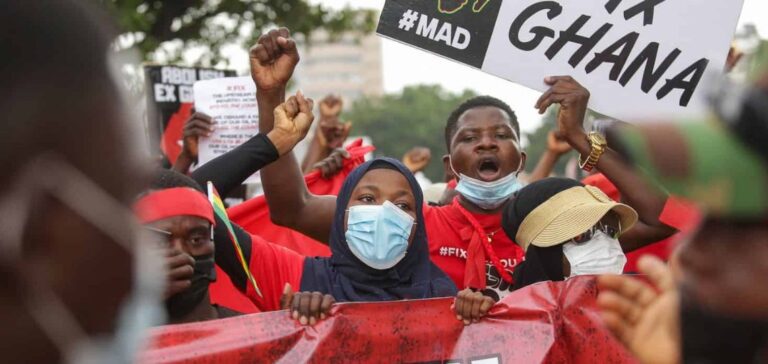Recent announcements by Ghana’s electricity distributors, the Ghana Grid Company (GridCo) and the Electricity Company of Ghana (ECG), concerning increased disruptions to the grid, have left the population worried. The blackouts, known locally as “dumsor”, are the result of maintenance work in Nigeria, which supplies a significant proportion of the gas needed to generate electricity in Ghana. Despite significant advances in electrification, Ghana continues to struggle with chronic electricity shortages.
Economic and social impact
Ghana, with a population of 33 million, relies heavily on natural gas (63%) and hydroelectricity (34%) for its power supply. However, dilapidated and poorly maintained infrastructures exacerbate the situation. The country imports a large part of its gas via the West African Gas Pipeline (WAGP) from Nigeria, a supply currently compromised by maintenance work.
Reactions and outlook
This energy dependence poses major challenges. According to Ben Boakye, Director of the Africa Centre for Energy Policy (ACEP), “dependence on gas, particularly from external suppliers, makes us vulnerable”. It calls for increased investment in renewable energies and the modernization of existing power plants to guarantee a steady supply of electricity. Entrepreneurs like Judith Esi Baidoo, a poultry seller in Accra, are suffering the direct consequences of these power cuts. She expresses her frustration: “The current cuts are already making it difficult to freeze my poultry. Now, with this three-week management plan, I’m afraid all my stock will deteriorate.” Ghana is striving to diversify its energy supply by exploring small modular reactor (SMR) technologies to reduce its dependence on gas energy. Although this initiative is still in the project phase, it represents a significant step towards a more sustainable energy transition.
Public and government pressure
The Ghanaian population, hard hit by a recent economic crisis and galloping inflation, sees these cuts as a betrayal on the part of the government. Timothy Oddoye, a telephone repairman, shares this frustration: “The government has had years to address these concerns, but we’re still suffering the same problems.” On June 8, hundreds of Ghanaians, supported by celebrities, demonstrated in Accra under the slogan #DumsorMustStop. These protests illustrate the growing pressure on the government to find lasting solutions to the energy crisis. The energy issue will be a central theme in the presidential elections scheduled for December. Persistent power cuts and their impact on the economy and the daily lives of Ghanaians will be crucial points of debate. This situation is not unique to Ghana. Nigeria, plagued by frequent load shedding, has also cut supplies to Togo, Niger and Benin since May 1, exacerbating a regional energy crisis.






















